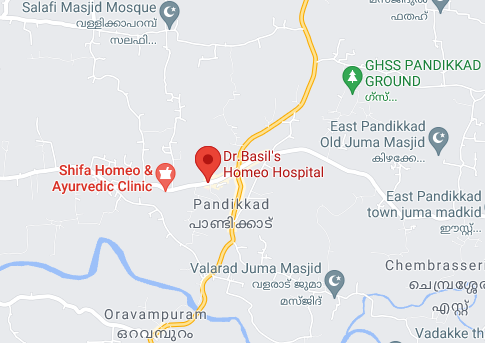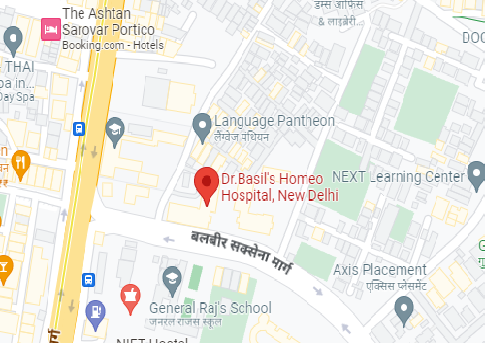Easy way to change fissure from home without surgery
Fissure is a health problem that affects both men and women today. Lifestyle and eating habits are the main cause of fissures
What is a fissure?
Fissures are small cracks or wounds in the skin around the anus. In 90 per cent of people, the fissures appear in the middle of the skin at the back of the anus. Many people mistake this disease for a pimple because it looks very similar to a pimple caused by the thickening of the nerves in the root.
What are its symptoms?
The main symptom of this is severe burning for one or two hours after passing the stool. The pain is felt like stabbing with a blade or knife. Along with this, severe bleeding occurs. Bleeding is usually seen as small streaks in the stool. A small lump in the anus is also a symptom of a fissure. This fat is called a skin tag. It is because of this swelling that people mistake it for acne.
Let's understand the causes of fissure:
Constipation is a major cause of fissures. Cracks are more likely to occur when the stool is thick. Frequent bowel movements can also cause fissures
Porottas, kuboos and roti made with refined flour are foods that lack fibre. Consuming these can cause constipation and cause fissures. Similarly, lack of exercise, tension and lack of sleep are also causes of fissures.
Why is it more common in women?
Fissures also occur with diseases such as tuberculosis, syphilis, HIV, and leukaemia. Fissure usually occurs after delivery in women. Many women are reluctant to drink water because of bloating during pregnancy. When water intake is reduced it results in constipation and causes fissures. Similarly, due to the pressure of the child, the stool becomes very thick. This can cause anal fissures. Anal fissures can also occur in women due to excessive straining during delivery. Fissures occur mainly in women due to these three reasons. The main cause of fissures in men is due to excessive consumption of certain foods.
How are piles, fissures and fistula different?
Piles, fissures and fistula are all three common problems in the anus. But these three often confuse us. Let's see how these three differ. In a fistula, a pus-like fluid comes out of the gap between the anal crack. Usually, it is not seen in the areas where the stool passes. After passing the stool in the fissure, there is severe pain in the anus. Bleeding is usually seen as a line in the stool. Piles usually cause less pain but more bleeding. Piles are also a condition in which thick lumps come out of the anus.
Dietary considerations for disease control include:
Foods to eat
1. Including more ragi, oats and dried grapes in your diet will help prevent constipation and prevent fissures.
2. It is better to use whole-grain rice and wheat.
3. It is best to use pulses without peeling them. It is also good to eat more types of sprouted beans.
Foods to Avoid
1. Avoid things like chicken, mutton and chicken eggs.
2. Avoid refined flours like porotta, kuboos, bread, noodles and pasta.
3. Avoid caffeinated foods and soda completely or if possible minimize them.
4. Avoid fried curries, spicy foods and spicy curries.
* Easy ways to cure fissures at home.*
Constipation can be avoided. Vegetables like spinach, carrots, beets, lettuce, pumpkin, sweet radish, asparagus, mushrooms, and pumpkins, legumes like black beans, chickpeas, chickpeas, chickpeas, beans, nuts, apples, pears, peaches, plums, bananas, berries, Eating more fruits like oranges, figs, and leafy greens like spinach and moringa can help prevent constipation. About 25-30 grams of fibre should be included in the diet a day.
2. Drink water:
Drinking about 2-3 litres of water a day thus can help prevent constipation as well as fissures.
3. Changing Toilet Habits:
We have many toilet habits. Those who have the habit of sitting on the toilet for a long time, holding a mobile phone and newspaper in the toilet should avoid these completely. Because sitting in the bathroom for too long and straining too much can cause fissures. Similarly, many people have a habit of holding back even when they feel like going to the toilet. Such habits also need to be changed.
4. Make exercise a habit:
Set aside 45 minutes of exercise at least five days a week.
5. Sleep: Make sure you get six to eight hours of good sleep. It is very effective in dealing with fissures as it helps in digestion and relieves constipation.
6. Sitz Bath: Fissure's main problem is severe pain. A sitz bath is very good for that. After taking 3/4 of hot water and adding 4-5 teaspoons of rock salt in a basin which is only a quarter of the height and width twice its height for 10-15 minutes daily. It can be very helpful in increasing blood flow, reducing pain, reducing infection and relieving constipation.
Need an operation? Minor fissures do not require surgery. People who sit for long periods, who are obese and who lack exercise should take the above precautions to prevent this disease. If you are having fissures, fight the disease by taking the precautions mentioned above.
Homeopathy is an effective treatment for those who have failed to do all the above. Homeopathy uses medicines that do not have any side effects. It can be healed without surgery with three to six months of treatment. Treatment is done to reduce pain, correct constipation, resolve digestive problems, avoid further complications, and resolve problems such as skin tags caused by this.
Doing so will help to make the permanent cure and prevent them from recurring Many people ask if there is a problem for the child when taking medicine because this disease occurs in those who have recently given birth as well as pregnant mothers. But homeopathic medicines have no side effects so there is no need for such fears.
Due to changing lifestyles and eating habits, this disease with severe pain has become very common among us. So we can fight and defeat this disease through proper diet, exercise and lifestyle.

